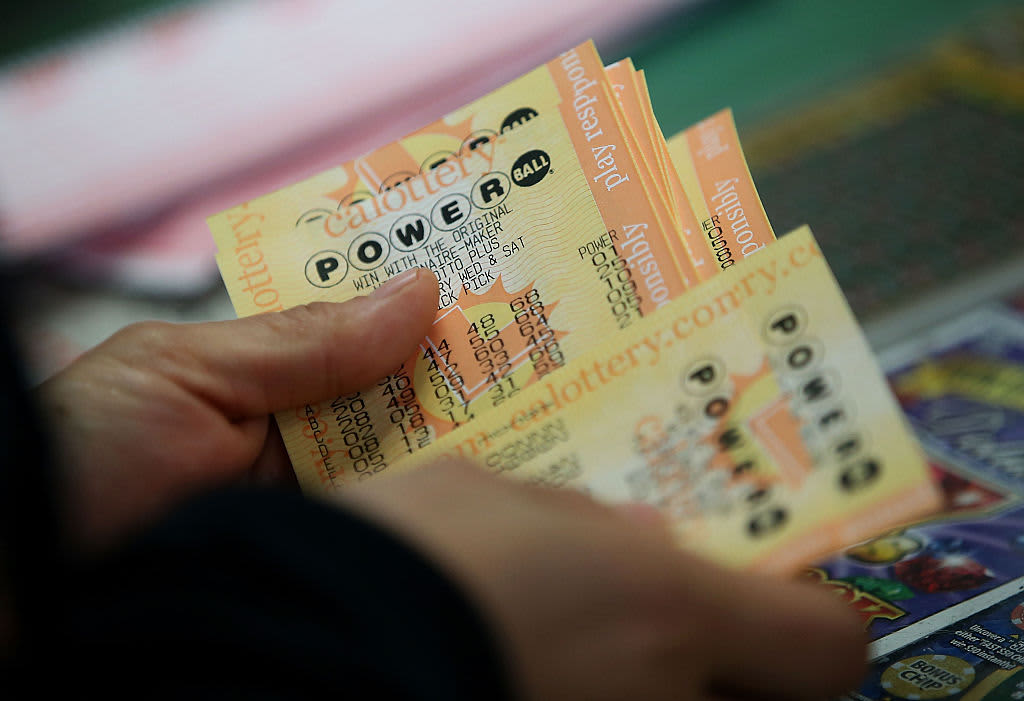Do you have your eyes on that $258 million Powerball jackpot? So does Uncle Sam.
If you’re lucky enough to win the top prize in Wednesday night’s drawing, remember that the IRS gets an up-front piece of big lottery wins. And that tax withholding wouldn’t be the end of it.
“There is still a sizable tax bill coming, for sure,” said April Walker, lead manager for tax practice and ethics at the American Institute of CPAs. “Winners have to plan for any additional amount that will be due … to the IRS and the state.”
Justin Sullivan | Getty Images
Whether you take the jackpot as an annuity spread across three decades or as an immediate, reduced lump sum, 24% is withheld for federal taxes. However, the current top marginal rate of 37% would mean owing a lot more.
For Wednesday night’s jackpot drawing, the cash option — which most winners go with — is $175.5 million. The 24% federal withholding would reduce that amount by $42.1 million, leaving you with $133.4 million.
Assuming you had no reductions to your taxable income — such as large charitable contributions — another 13%, or $22.8 million, would be due to the IRS at tax time (which would be April 2021 for jackpots claimed in 2020).
That would be $64.9 million in all going to Uncle Sam, leaving you with a cool $110.6 million.
However, state or local taxes would be on top of that. Those levies range from zero to more than 8%, depending on where the ticket was purchased and where the winner lives. In other words, you could end up paying more than 45% in taxes.
And, like the federal withholding rate on jackpot wins, the amount withheld for state taxes might also be less than what you’ll owe.
“They might withhold at, say, 5%, but the rate you pay might be 6%,” Walker said.
There are ways to reduce the amount of winnings that gets taxed, although not many.
The charitably inclined can lower their taxable income by making a cash donation of up to 60% of their adjusted gross income and carry forward, up to five years, any excess amount.
Some lottery winners set up their own charitable foundation or similar option, such as a donor-advised fund, and donate a portion of their windfall to it.
“That would be a way to direct charitable contributions over a period of time but take the deduction [for the current tax year],” Walker said.
More from Personal Finance:
Holiday debt could take years to pay off
New year, new tax updates. What to know for 2020
How to fix key money issues before getting married
Despite forking over a hefty amount to federal and state coffers, the after-tax amount would likely be life-changing. Experts say jackpot winners should assemble a team of experienced professionals — an attorney, a tax advisor and a financial advisor — to help navigate their sudden wealth.
In 2019, Powerball and Mega Millions each had seven jackpots won throughout the year, worth an advertised $3.8 billion in all.
Excluding two jackpots that remain unclaimed, all winners chose the cash option — collectively about $2.06 billion — instead of an annuity. In total, roughly $505.5 million was withheld in federal taxes.
Your chance of winning the Powerball jackpot is about 1 in 292 million. For Mega Millions, it’s roughly 1 in 302 million.
